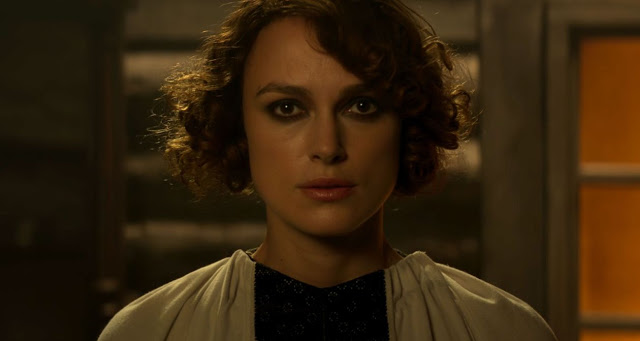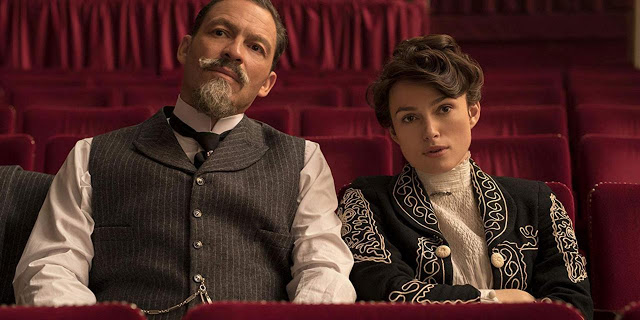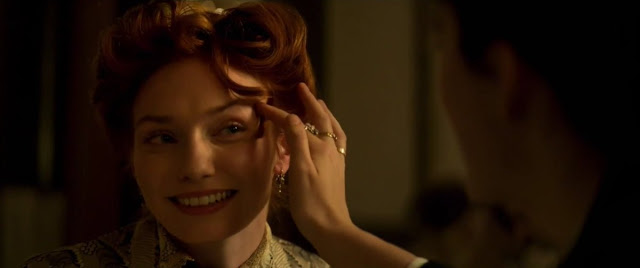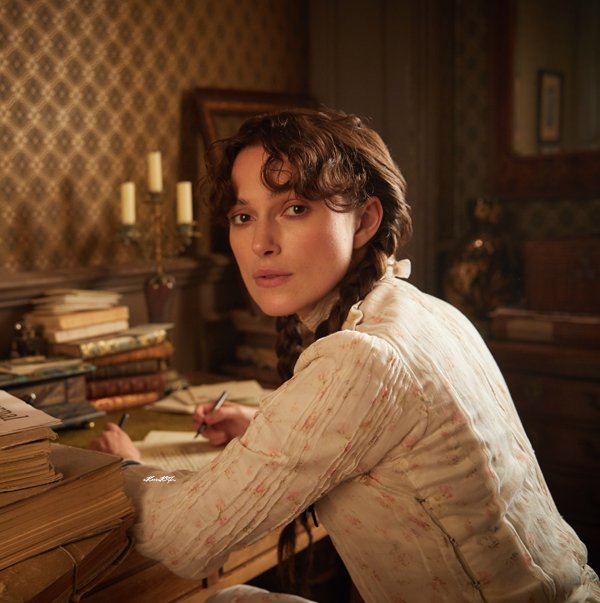Early in Colette, the entrepreneur Henry Gauthier-Villars—better known as Willy, his nom de plume—lays out his plan to publish a wildly popular novel. He conceives of an epic work that’s both refined and ribald, literate enough to appeal to highbrows but sufficiently tawdry to intrigue “the unwashed masses”. Then he pauses, musing, “Maybe it’s the other way around.”
He might be onto something. The issue endemic to many period pieces—this one opens in 1892 and spans roughly 15 years—is a surfeit of gentility, and a corresponding lack of vulgarity, like a catered dinner party with no spice and no impudent conversation. Colette plainly has the handsomeness part of the equation down pat, sporting a luxuriant score, ravishing costumes, and fluid camerawork. What surprises and enchants about this movie, which was directed by Wash Westmoreland from a script he wrote with Richard Glatzer (his late husband) and Rebecca Lenkiewicz, is how breezily entertaining it is. Colette is elegant, yes, but it is also funny, sexy, angry, and even a little bit naughty. To paraphrase Gordon Gekko: Gauche is good.
And so is Keira Knightley. Traveling a half-century back in time from the events of The Imitation Game to play the novelist Sidonie-Gabrielle Colette, she again elevates her material with a technically immaculate performance that’s also deceptively intricate. The screenplay charitably affords her a number of Oscar-clippy monologues, which she delivers with the requisite fire and fury; Colette’s late dressing-down of her husband doubles as an ardent defense of independent womanhood. But as good as Knightley is with an impassioned speech, she also rounds out the character, revealing a suppressed artist defined equally by intelligence, frustration, and desire.
Those qualities are essentially invisible when we first meet Colette in Saint Sauveur, a lovely but unremarkable commune located a few hundred miles and a world apart from Paris. (This being a British production, the actors converse in English, but a few glimpses of the written word reveal that the characters are actually speaking French.) There she’s courted by Willy (a wonderful Dominic West), a swaggering drunk and flailing pulp author who whisks Colette off to the City of Lights, marries her, and promptly conscripts her into his team of ghostwriters. Willy’s novel idea is that women might actually be interested in reading about women, which inspires Colette to pen a series of books—loosely inspired by her own country-girl-transported-to-the-big-city life—about an ingénue named Claudine.
Whether Colette is correct as a matter of historical record is not for me to say, or really even to care about; there is too much else going on to waste time quibbling over factual inaccuracies. First and foremost (and not unlike Phantom Thread), it functions as a pointed study of an asymmetrical marriage. Willy dotes on Colette, sure, but he is also brazenly unfaithful, strayings that he justifies as a member of “the weaker sex”. At the same time, he is both possessive of his young wife—at one point, he locks her in a study to force her to write, a technique even the most deadline-conscious editor would never dream of—and resentful of her efforts to gain a modicum of freedom, be it artistic, personal, or sexual. He’s a bastard who’s nevertheless fun to be around, which makes him a perfect role for West, who spent the better part of a decade on American television (first in The Wire, then in The Affair) honing the part of the entitled asshole. With his top hat and curled mustache, Willy automatically sucks the oxygen out of every room he’s in, and West’s blustery performance complements Knightley’s more nuanced turn, suggesting a man whose arrogance is a smoke screen to hide his own insecurities. (Viewers of this movie are virtually compelled to seek out The Wife, another film about an acclaimed male author and the female spouse quietly steering his success.)
Yet Colette’s focus on gender extends beyond marital infidelity and double standards. It also considers the struggles of a talented woman seeking to establish herself in a patriarchal society (such antiquated times, amirite?). The Claudine novels are of course published under Willy’s name, and when Colette casually floats the idea of adding her own to the byline, her husband—who is also her boss and arguably her keeper—furiously rejects her, insisting that it would tarnish their brand. It’s purported commercial strategy (why mess with success?) used to disguise systemic subjugation (woman, know thy place).
Colette’s themes are worthy and important, but Westmoreland’s direction is so light, you barely notice their gravity. His previous movie, Still Alice (which he co-directed with Glatzer), was appropriately sober and sensitive, but it didn’t hint at the sensuous atmosphere he conjures here. Early sequences at lavish Parisian parties, where Giles Nuttgens’ camera glides through crowds of posh socialites, echo Knightley’s splendid collaborations with Joe Wright. And while the movie initially seems to position Colette and Willy at opposite poles—the caged songbird and her cruel master—it gradually demolishes those expectations, particularly with the arrival of Georgie (Eleanor Tomlinson), an American redhead with coy smiles and inquisitively arching eyebrows. Here the film’s sexual politics become more convoluted—despite his inherent jealousy, Willy is tantalized by the prospect of Colette cavorting with another woman—which allows Colette to strip off the suffocating restrictions of the period piece, figuratively and literally.
As absorbing as Colette’s story may be, it isn’t especially insightful about creating stories. Which is to say, Westmoreland never really digs into his heroine’s process. There are the typical montages of writerly impotence and inspiration—brows furrowing, ink spilling onto paper, parchment being crumpled up in disgust—but the movie never bothers to examine the particulars of Colette’s genius, or what made her works so popular. We see the consequences of her output—in a nice touch, seemingly every woman in Paris suddenly styles her hair into Claudine’s signature bob—without properly understanding it.
But digging beneath the surface isn’t all that critical when the surface itself is so appealing. And thanks to Westmoreland’s craft and Knightley’s buoyant performance, Colette ultimately satisfies Willy’s prophecy, working both as a polished biopic and as a deeply enjoyable piece of pop art. Throughout the film, aspiring actresses recite the opening lines of the first Claudine novel: “My name is Claudine, I live in Montigny; I was born there in 1884; I shall probably not die there.” Colette pays tribute to that promise of self-discovery, constantly moving forward in exciting new directions, always full of life. It was made in 2018; it shall probably not die there.
Jeremy Beck is the editor-in-chief of MovieManifesto. He watches more movies and television than he probably should.




